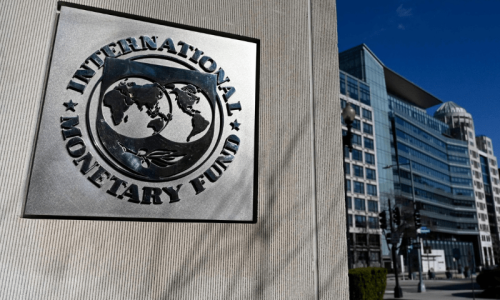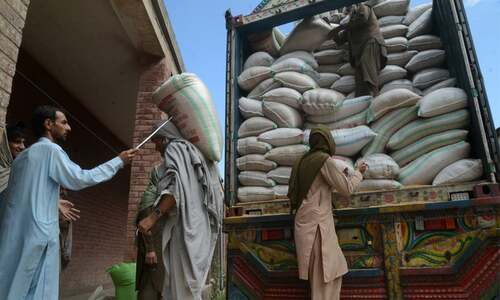KARACHI: Conventional banks lag far behind Islamic banks in lending to the private sector, with conventional banks still in the negative zone at the end of the seventh month of the current fiscal year, FY24.
The latest data from the State Bank of Pakistan, issued on Friday, indicates that conventional banks continue to experience net debt retirement instead of lending to the private sector.
However, Islamic banks and Islamic branches of conventional banks have started lending, albeit at a slower pace, clearly indicating the poor economic activity on the part of the private sector.
The data shows that conventional banks recorded a net withdrawal of Rs7 billion during July to Feb 2, FY24. This is a stark contrast to the previous year’s performance when banks lent almost half a trillion rupees (Rs492.4bn) to the private sector in the same period of the previous fiscal year.
Despite the higher lending in the previous year, the economic growth rate was negative in FY23, indicating that no lending to the private sector this year would result in a poorer economic growth rate. The IMF estimates a two per cent GDP growth this year, while the situation appears alarming.
Sluggish investment signals poorer economic growth
The trade and industry are protesting against the regular increase in gas, electricity, and petroleum prices, but the caretaker government seems bound to follow the guidelines from the IMF. The donor agency is demanding the generation of more revenue to meet the targeted fiscal deficit and resolve the ever-increasing circular debt.
Recently, representatives of the largest industrial sector, textiles, announced that 50pc of their industry is facing the threat of closure due to the high cost of production. Along with expensive money and high inflation of more than 28pc, costly production has significantly affected consumption in the country.
The drastic reduction in the purchasing power of the common people has diminished the demand for goods produced by local manufacturers. The Large Scale Manufacturing (LSM) sector shrank by 0.39pc during the first half of the current fiscal year.
Another change in the lending pattern was noted in the case of Islamic branches of conventional banks, as their lending during the first seven months of this year was Rs36bn. This contrasts with the previous year’s track when these Islamic branches noted a net withdrawal of Rs431bn during the seven months of FY23. It shows that even conventional banks feel less risk in the Islamic mode of financing.
The lending by Islamic banks during the first seven months of this fiscal year was Rs68.7bn, compared to Rs427.7bn in the same period of the last fiscal year. This is also a poor response to the market. The private sector is under great stress due to costly money with a 22pc interest rate. Most analysts believe there is no chance for a decline in the interest rate due to high inflation.
Published in Dawn, February 17th, 2024












































Dear visitor, the comments section is undergoing an overhaul and will return soon.